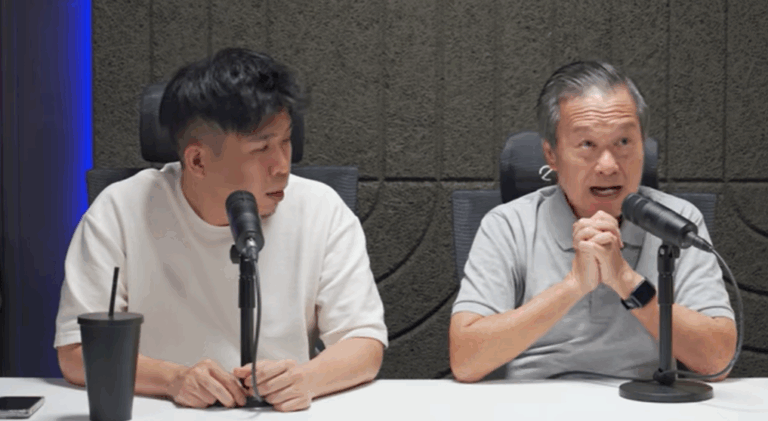| Attribute | Details |
|---|---|
| Full Name | Tan Kin Lian |
| Date of Birth | 9 March 1948 |
| Nationality | Singaporean |
| Occupation | Businessman, Financial Educator, Former CEO of NTUC Income |
| Education | Raffles Institution |
| Political Involvement | Former PAP Member, Presidential Candidate (2011, 2023) |
| Notable Role | CEO of NTUC Income (1977–2007) |
| Estimated Net Worth (2025) | S$8 million to S$15 million (unofficial estimate) |
| Known For | Cooperative leadership, consumer advocacy, ethical business values |
| Reference | Tan Kin Lian – Wikipedia |
Given that Tan Kin Lian guided NTUC Income from its humble beginnings to a national organization with assets exceeding S$17 billion, his financial impact is surprisingly modest. His three-decade career, which began when he was just 29, was characterized by increasing access to reasonably priced insurance in Singapore rather than by personal wealth accumulation. He frequently took economy flights, avoided five-star hotels, and shunned the perks that typically accompany executive status as part of his purposefully thrifty leadership style. That way of life was a perfect fit with NTUC Income’s mission to provide dependable protection to working-class families.
The cooperative’s asset growth under Tan’s leadership was noticeably faster than that of the majority of its rivals in the commercial markets. He maintained a system that gave value to policyholders rather than private shareholders by bucking pressure to privatize or go public. His support for cooperative models was ingrained in day-to-day operations and wasn’t merely theoretical. A feedback loop of trust and retention was established, with every dollar saved from excessive spending going toward better coverage or cheaper premiums.
His estimated net worth for 2025 is between S$8 million and S$15 million, which is by no means extravagant. However, because it represents decades of restrained accumulation, it has greater weight than many larger fortunes. After retirement, Tan concentrated on educational outreach rather than starting ostentatious businesses or serving on several lucrative boards. To assist Singaporeans in making wise financial decisions, he founded the Financial Services Consumer Association (FISCA). His focus on financial literacy was incredibly successful in filling in knowledge gaps, particularly for senior citizens navigating insurance and retirement planning.
During the 2008 financial crisis, Tan’s activism gained significant attention. He became a key figure in rallying almost a thousand impacted investors when Lehman Brothers’ failure destroyed savings linked to minibonds. His deeds during this time were not merely symbolic; they had a profound effect, providing both concrete advocacy and moral support. His voice was very clear and very human, even though it was devoid of Wall Street jargon and investment jargon.
Tan made the decision to enter politics in 2011 with the goal of becoming president. Fairness, openness, and growing income disparity were major themes in his campaign. Even though he didn’t get the job, he promoted discussions that would not have otherwise been heard, especially about the declining economic opportunities for middle-class families. He focused twice as much on issues like the cost of living and housing affordability when he ran for office again in 2023. Particularly among younger Singaporeans dealing with a shifting economic environment, these messages struck a chord.
Tan’s social media presence, particularly on Facebook, developed into a forum for public discussion. He wrote as frequently as a columnist, offering his opinions on everything from foreign ownership of regional insurance companies to CPF reforms. Given that he was the one with firsthand experience at the top, his criticism of Allianz’s bid for Income’s successor company resonated. His posts frequently emphasized the unique features of local governance systems and the reasons they were deserving of support.
Tan continued to be financially active behind the scenes even after leaving local operations. He advised insurance ventures throughout Indonesia and made an investment in Forest City, a contentious but highly promising real estate development in Malaysia. Despite being low-key, these actions were clearly calculated. Without forcing him into the realm of speculation, they expanded his financial foundation. In this way, his net worth reflects consistent growth, a quality that many financial advisors advocate but few actually exhibit.
Tan’s asset base stands in stark contrast to the wealth of other Singaporean business leaders. Others strive for international deals and high-profile listings, but Tan prioritized stability and trust over the long run. His strategy is remarkably similar to that of the late President Ong Teng Cheong of Singapore, with whom he shared a vision of strength through cooperation. During Ong’s official portrait and inauguration, the red orchid tie that Tan gave him became an unspoken symbol of shared dignity and collective uplift.
Tan has also had a significant impact on public policy. He has been able to maintain his relevance in discussions about economic justice through petitions, blog entries, and advisory positions. The way cooperative businesses define their social responsibility has been impacted by his rejection of elitism and emphasis on citizen-driven models. Because of this philosophy, he is not only adored by Singapore’s working class but also serves as a model for socially conscious leadership in Southeast Asia.
Tan Kin Lian presents a strikingly different story in today’s celebrity-obsessed financial culture, where public figures’ net worth is frequently viewed as a scoreboard. His narrative flourishes in laws, demonstrations, and public confidence rather than stock options or beachfront homes. He established himself as an institution in his own right by carefully managing NTUC Income and then focusing his later years on advocacy, demonstrating that honesty is still a very effective way to create long-term value.



